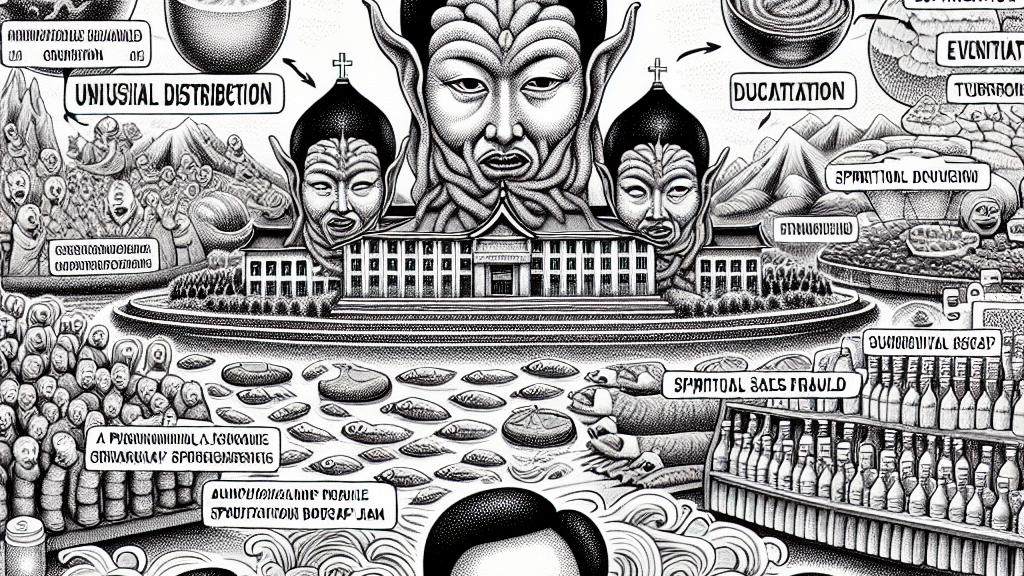Unveiling the Shadowy Profits: The Hidden Businesses of the Unification Church in Japan
Overview
- In-depth exploration of the Unification Church's extensive and varied business operations in Japan.
- Case study of True World Foods highlighting the connection between profit and financial practices.
- Critical assessment of ethical dilemmas, fundraising strategies, and their impact on communities.

The Unification Church's Intricate Expansion in Japan
The Unification Church, founded in 1954 by Sun Myung Moon, has become a powerful entity in Japan, turning the country into its largest financial engine. With its influence growing post-World War II, the church diversified into several sectors, including beverage production with unique offerings like turmeric drinks, fresh seafood distribution, and educational services like tutoring. This strategic expansion reveals how the church capitalizes on Japan's cultural norms of community support, often leveraging them to solicit donations through sometimes controversial practices such as 'spiritual sales fraud.' Such methods raise significant concerns regarding financial exploitation, showcasing a troubling interdependence between spirituality and commerce.
True World Foods: A Profitable Enterprise with Deep Connections
True World Foods exemplifies the Unification Church's commercial success, dominating the fresh seafood supply for sushi restaurants across the United States. Active in 17 states, this company not only supplies a variety of seafood, including over 40 types of salmon and crucial ingredients for sushi preparation, but it has also cultivated a network that underscores its role in the restaurant industry. However, its rise can be traced back to financial foundations laid in Japan, where funds raised from followers have directly supported the enterprise's expansion. The intertwining of church-generated wealth with its commercial pursuits beckons critical scrutiny around the ethics of fundraising, as these practices can significantly affect community members and their financial wellbeing.
Ethical Concerns and the Need for Increased Accountability
The financial practices associated with the Unification Church are laden with ethical challenges, particularly regarding the funneling of vast amounts of money from Japan to support its commercial ventures in the U.S. Reportedly, billions have been transferred, often under the pretense of spiritual contributions, raising critical questions about manipulation and exploitation. Critics argue that the church's fundraising tactics can lead to adverse societal impacts, where families suffer from financial strain due to the pressure to donate. To address these issues, there exists a compelling need for regulatory reforms to enhance transparency and accountability within religious organizations engaged in business, ensuring that followers and communities are protected from unethical financial maneuvers.
Broader Social Implications and Reform Advocacy
The influence of the Unification Church transcends mere financial metrics; it deeply impacts social structures and community trust. As the church intertwines business with spiritual pursuits, it fosters environments that may perpetuate financial exploitation and erode communal bonds. Advocates for reform illustrate the necessity for stricter oversight of religious organizations' fundraising activities, emphasizing that spiritual beliefs should not provide a shield against ethical scrutiny. By promoting initiatives aimed at transparency and ethical fundraising, society can work towards restoring trust while safeguarding individuals from oppressive financial practices inherent within some communal structures.

Loading...